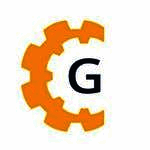Description

Dell Avamar

Pro Backup
Comprehensive Overview: Dell Avamar vs Pro Backup
Dell Avamar and Pro Backup are two distinct solutions with specific functions and target markets in the data backup and recovery space. Let's break down each one:
Dell Avamar
a) Primary Functions and Target Markets:
- Primary Functions:
- Dell Avamar is a backup and recovery software solution that focuses on providing efficient data protection, particularly for virtual environments, remote offices, and enterprise applications.
- It uses deduplication technology to minimize storage use by reducing redundant data, thereby optimizing bandwidth and storage space.
- Avamar supports cloud backup, disaster recovery, and provides comprehensive support for virtualized environments like VMware and Hyper-V.
- It offers encryption for data at rest and in transit, ensuring robust security.
- Target Markets:
- Primarily targeted towards medium to large enterprises seeking efficient data protection solutions.
- Industries such as healthcare, finance, and government sectors often use Avamar due to its security capabilities and compliance features.
b) Market Share and User Base:
- Market Share:
- Dell Avamar is considered a significant player in the enterprise backup and recovery market, although its market share can be influenced by competition from other enterprise-focused solutions like Veritas NetBackup, Veeam, and Commvault.
- User Base:
- Avamar has a strong user base among enterprises that require robust data protection for complex IT environments, particularly those with a large number of virtual machines and remote offices.
c) Key Differentiating Factors:
- Deduplication Technology:
- Avamar is known for its client-side deduplication, which reduces the amount of data transferred across the network, leading to faster backup times and reduced bandwidth usage.
- Integration with Dell EMC Products:
- Avamar integrates seamlessly with other Dell EMC products, offering a cohesive ecosystem for storage and data protection.
- Scalability and Performance:
- Provides high scalability and is effective in environments with extensive virtualization.
Pro Backup
Pro Backup is a term that might refer to various backup solutions designed for professional use, often tailored towards small to medium-sized businesses (SMBs) needing reliable yet straightforward backup solutions. However, due to the generic nature of the term, it could represent multiple products, so I'll describe a generalized view of what a "professional backup" might entail:
a) Primary Functions and Target Markets:
-
Primary Functions:
- Pro Backup solutions typically offer straightforward backup and restoration features, often with cloud integration to facilitate offsite storage.
- They may provide automation, scheduling features, and basic encryption to ensure data security.
- Professional solutions often support common platforms like Windows, macOS, and Linux, addressing the needs of smaller IT environments.
-
Target Markets:
- Primarily caters to SMBs that require a balance of cost, functionality, and ease of use.
- Startups and small companies needing dependable solutions without extensive IT infrastructure.
b) Market Share and User Base:
- Market Share:
- Pro Backup solutions cater to a more fragmented market, with a wide variety of products catering to different segments within the SMB space. Well-known solutions in this domain might include Acronis, CrashPlan, and Backblaze.
- User Base:
- Generally, a broad user base ranging from home users to small IT departments in need of reliable and manageable backup solutions.
c) Key Differentiating Factors:
- Ease of Use:
- Pro Backup solutions often emphasize user-friendly interfaces and ease of setup, making them accessible for organizations without specialized IT staff.
- Cost-effective:
- Typically more affordable compared to enterprise-grade solutions, making them attractive to smaller businesses.
- Flexibility:
- These solutions may offer flexibility in terms of deployment options (cloud, hybrid, on-premises) and compatibility with different operating systems.
Conclusion
Dell Avamar and Pro Backup solutions serve different segments and needs within the data backup market. Avamar is more enterprise-oriented with advanced features suited for large-scale deployment, while Pro Backup solutions typically focus on affordability, simplicity, and flexibility, appealing to the SMB market. When selecting a backup solution, companies should carefully evaluate their specific needs, infrastructure, and budget to choose the most suitable product.
Contact Info

Year founded :
Not Available
Not Available
Not Available
Not Available
Not Available

Year founded :
2020
+46 790 20 74 59
Not Available
Belgium
http://www.linkedin.com/company/probackup-io
Feature Similarity Breakdown: Dell Avamar, Pro Backup
Dell Avamar and Pro Backup are both data protection solutions offering robust backup and recovery capabilities, but they are designed for slightly different use cases and customers. Here's a breakdown of their core features, UI comparison, and unique differentiators:
a) Core Features in Common
-
Data Deduplication: Both Avamar and Pro Backup offer advanced data deduplication, which minimizes storage needs by eliminating redundant data across backups.
-
Centralized Management: They provide centralized management consoles that allow administrators to configure, monitor, and manage backup and recovery tasks.
-
Automated Scheduling: Support for automated backup scheduling, ensuring data is consistently protected without requiring manual intervention.
-
Scalability: Designed to scale efficiently, allowing businesses to expand their backup capacity as needed.
-
Support for Multiple Platforms: Both solutions support backups for various platforms and environments, including physical, virtual, and cloud environments.
-
Data Encryption: Offers robust encryption options both in transit and at rest to ensure data security.
-
Fast Recovery: Provides mechanisms for rapid data recovery to minimize downtime in the event of data loss.
b) User Interface Comparison
-
Dell Avamar: Typically features a more enterprise-focused UI, which might be complex for new users but is very detailed—a reflection of its comprehensive feature set. It offers a rich graphical interface with a lot of in-depth analytics and reporting capabilities suitable for large-scale deployments.
-
Pro Backup: Often streamlined for ease of use with an emphasis on intuitive navigation. While it may have fewer advanced visualization tools compared to Avamar, it's tailored to be user-friendly, making it accessible even for users who might not be IT professionals. Ideal for small to medium businesses needing effective, no-fuss backup solutions.
c) Unique Features
Dell Avamar:
-
Integration with EMC Data Domain: Avamar can integrate with Data Domain systems, leveraging advanced deduplication technology to improve storage efficiency further.
-
VMware vCenter Integration: Known for its deep integration with VMware environments, Avamar provides an agentless backup solution for virtual machines.
-
Avamar Data Store: A purpose-built backup appliance, the Avamar Data Store is optimized for seamless integration and high performance.
Pro Backup:
-
Cloud-Native Compatibility: Pro Backup might offer better cloud-native functionalities, especially if targeting certain cloud services or applications, benefitting from simplified deployment in such environments.
-
Cost-Effective Solutions for SMBs: Often caters better to small and medium-sized businesses by offering flexible pricing models and avoiding enterprise feature overkill.
-
Simplicity in Setup: Pro Backup may stand out with its ease in initial setup and deployment, appealing to companies with limited IT resources.
It's essential to evaluate these products regarding your specific organizational needs, existing infrastructure, and intended use cases, as each has strengths that can be advantageous in different scenarios.
Features

Not Available

Not Available
Best Fit Use Cases: Dell Avamar, Pro Backup
Dell Avamar and Pro Backup both serve different use cases and scenarios in the realm of data protection and backup solutions. Let's break down the optimal use cases for each and how they cater to different industries and company sizes:
Dell Avamar
-
Best Fit Use Cases:
- Enterprise-Level Backup Needs: Dell Avamar is well-suited for large enterprises that require efficient, scalable, and reliable data backup solutions.
- Virtual Environments: Organizations leveraging virtual machines will find Avamar’s capabilities in backing up VMware and Hyper-V environments particularly beneficial.
- Remote Office Backup: Companies with multiple remote offices or branches can centralize backup management and reduce bandwidth consumption effectively through Avamar’s global deduplication features.
- Network Efficiency: Businesses needing efficient use of network resources during backup operations would benefit from Avamar’s client-side deduplication.
-
Types of Businesses or Projects:
- Large enterprises in industries such as finance, healthcare, and telecommunications where data integrity and security are critical.
- Companies with a substantial virtual and remote infrastructure footprint requiring comprehensive data protection strategies.
Pro Backup
-
Preferred Scenarios:
- Small to Medium-Sized Businesses (SMBs): Pro Backup solutions are typically more cost-effective and provide just the right level of functionality for smaller enterprises without complex infrastructure.
- Specific Application or Platform Focused: If a business requires backup solutions specifically for cloud-based applications (e.g., SaaS services like Salesforce or Google Workspace), Pro Backup often provides specialized connectors or solutions tailored to these needs.
- Cost-Conscious Projects: Projects with limited budgets may prefer Pro Backup for its affordability while still providing essential backup features.
-
Types of Businesses or Projects:
- SMBs across various sectors seeking straightforward and reliable backup solutions.
- Startups or growing companies that need backup without a significant investment in infrastructure or training.
Catering to Different Industry Verticals and Company Sizes:
-
Dell Avamar:
- Verticals: Highly regulated industries such as healthcare, financial services, and government benefit from Avamar’s compliance and security features, ensuring data privacy and meeting stringent regulatory demands.
- Company Size: Large corporations with vast amounts of data and complex infrastructure are ideal candidates due to Avamar’s scalability and ability to handle extensive data environments.
-
Pro Backup:
- Verticals: Sectors with a focus on cloud services and SMB-focused industries such as education, small retail, and tech startups can leverage Pro Backup’s capabilities in cloud-native backup.
- Company Size: Small to medium-sized businesses will find Pro Backup solutions aligned with their needs, offering simplicity, ease of use, and cost-effectiveness for lesser data volumes and backup complexity.
Overall, while Dell Avamar is a robust solution for larger enterprises with complex data requirements, Pro Backup targets the needs of smaller businesses or specific application environments with simplicity and efficiency.
Pricing

Pricing Not Available

Pricing Not Available
Metrics History
Metrics History
Comparing teamSize across companies
Conclusion & Final Verdict: Dell Avamar vs Pro Backup
Conclusion and Final Verdict for Dell Avamar vs. Pro Backup
When evaluating backup solutions like Dell Avamar and Pro Backup, it's crucial to consider various factors including cost, performance, scalability, ease of use, and specific business needs. Both Dell Avamar and Pro Backup present unique features and benefits tailored to different types of users. Let’s delve into a comprehensive conclusion and final verdict for these two products.
a) Overall Best Value
Dell Avamar often offers the best value for enterprises that require a reliable, scalable solution with robust data deduplication capabilities. It's best suited for environments with critical data that require rigorous data protection and recovery features. Avamar's integration with other Dell EMC solutions can enhance its value for businesses heavily invested in Dell technologies.
Pro Backup tends to provide greater value for smaller to mid-sized businesses or organizations transitioning to the cloud. It is typically more cost-effective, offering flexibility and ease of use, making it an excellent choice for those who prioritize user-friendliness and budget constraints.
b) Pros and Cons
Dell Avamar:
-
Pros:
- Advanced Data Deduplication: Significantly reduces storage needs and improves backup efficiency.
- Integration Capabilities: Seamless integration with other Dell EMC products for a comprehensive data protection strategy.
- Scalability: Effectively scales to accommodate large enterprise environments with diverse data protection needs.
- Security Features: Strong encryption and data protection capabilities.
-
Cons:
- Cost: Higher initial investment and ongoing costs, which may not be feasible for smaller businesses.
- Complexity: More complexity in setup and management, often requiring specialized IT resources.
- Resource Intensive: May require substantial system resources for optimal performance.
Pro Backup:
-
Pros:
- Cost-Effective: Affordable pricing models that are attractive to small to medium-sized businesses.
- Ease of Use: User-friendly setup and management, requiring less IT infrastructure expertise.
- Flexibility: Offers cloud solutions that cater to modern, agile business environments.
- Simplicity: Streamlined interface and straightforward management.
-
Cons:
- Limited Features: May lack some advanced features and integrations offered by enterprise-grade solutions like Dell Avamar.
- Scalability Constraints: Less ideal for very large businesses with complex IT environments.
- Performance: Potentially less robust under intensive, enterprise-level workloads.
c) Specific Recommendations
For organizations trying to decide between Dell Avamar and Pro Backup, consider the following recommendations:
-
Evaluate Business Size and Growth Projections: If you are a growing enterprise with plans to scale your operations, Dell Avamar’s advanced features and scalability might be more aligned with your long-term objectives.
-
Budget Considerations: If budget constraints are a primary concern, particularly for small to medium-sized businesses, Pro Backup offers an economically feasible option without compromising essential backup functionalities.
-
Assess Technical Capabilities and Resources: Consider the technical expertise available within your organization. Dell Avamar may require more specialized skills, while Pro Backup offers simplicity and ease of use.
-
Integration Needs: Businesses that are already integrated within the Dell EMC ecosystem may find greater synergy and benefits from using Dell Avamar. Alternatively, if flexibility and cloud capabilities are more aligned with your strategy, Pro Backup may be a better fit.
Ultimately, the choice between Dell Avamar and Pro Backup should be guided by your specific organizational needs, budgetary constraints, and long-term data management strategies. Both solutions offer valuable benefits, but aligning those benefits with your company’s goals will determine which provides the best overall value for your business.
Add to compare
Add similar companies




